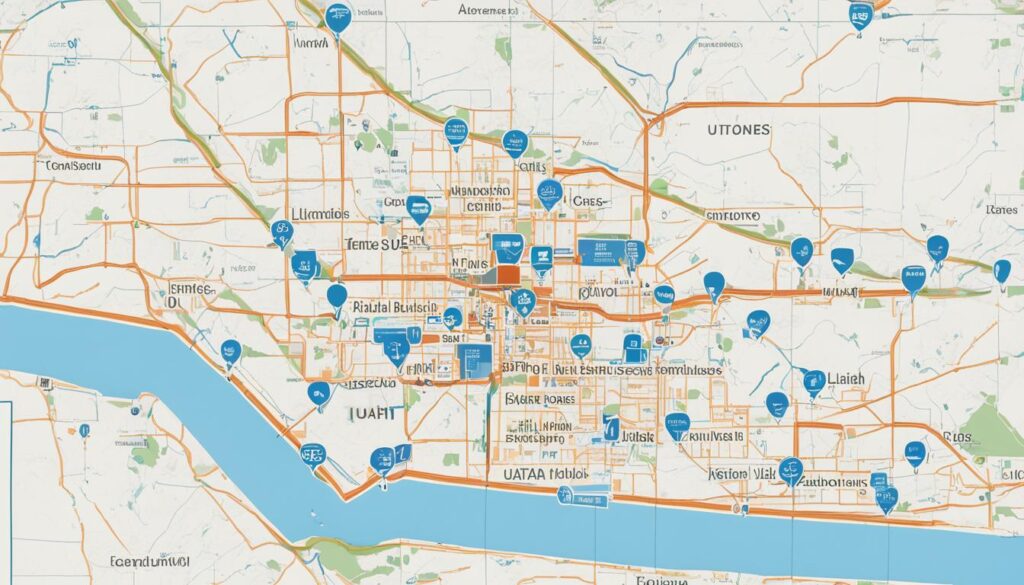When you’re starting a business, there are countless “to-dos” to check off your list, but one query that might be looming over you is: can you get liability insurance without a business license? The business world can be unpredictable, and securing liability coverage without a business license could be crucial for your peace of mind. Many budding entrepreneurs often find themselves in a catch-22 situation where their business license is pending, yet they need to commence work immediately. Fortunately, there are pathways to obtaining liability insurance without a license, but it’s important to understand the intricacies of insurance policies and providers like NEXT, who are accommodating but also stress the importance of formalizing your business as swiftly as possible.
In the interim, the right coverage is fundamental to protect your professional efforts from claims of property damage and bodily injury, both of which can unexpectedly strain your finances. Let’s explore how you can arm your business with liability insurance, smoothing out operations and nurturing confidence in your brand from the get-go.
Key Takeaways
- Securing liability insurance can sometimes precede obtaining a business license, depending on your state and industry.
- General liability insurance is not mandated by law but is pivotal for safeguarding against unforeseen claims.
- Insurance providers usually prefer or require a business to be licensed but may offer interim solutions.
- While covering legal fees and damages, liability coverage also enhances client trust and business credibility.
- It’s essential to pursue a business license promptly to avoid potential complications with claims.
- Companies like NEXT provide tailored liability insurance solutions, catering to a wide array of professional needs.
Understanding Liability Insurance and Its Relevance to Licensing
In your entrepreneurial journey, recognizing the intricacies of liability insurance and how it ties into business licensing can be pivotal. Before delving into specifics, let’s establish what general liability insurance encompasses and why it’s often intertwined with the regulatory world of business licenses.
What is General Liability Insurance?
Consider general liability insurance as a knight guarding your business castle. This type of insurance provides robust protection against common operational risks, such as injuries sustained by non-employees on your premises or damage caused to a client’s property. It encompasses more than just physical mishaps, extending coverage to the realm of advertising injuries, which safeguard your business against claims of slander or copyright infringement.
Although not legally mandated across the board, **general liability insurance** acts as a badge of credibility in business spheres, often making the difference in establishing trust with partners and clients. It can also be a critical tool for business growth, offering peace of mind to both you and your stakeholders.
The Role of a Business License in Obtaining Insurance
A business license not only greenlights your operations from a legal standpoint but also plays a significant role when it comes to securing liability insurance. It is often viewed by insurance carriers as a prerequisite for determining eligibility and tailoring insurance plans to your specific business needs.
In particular industries such as construction, regulatory compliance goes hand-in-hand with licensing, which could include a requirement for additional policies like workers’ compensation. Essentially, having your **business license** in order can streamline the process of acquiring all-important **insurance options without a business license**.
- Business licenses confirm the legality of your operations to the insurer
- A license can influence the types and terms of insurance coverage available
- Licensing ensures adherence to industry-specific insurance requirements
Understanding the role of a business license in the realm of business insurance doesn’t have to be a labyrinthine task. It can lead to more comprehensive coverage options, tailor-made to support and protect your business endeavors, even in instances where you’re exploring **liability insurance for business without license** scenarios.
Can You Get Liability Insurance Without a Business License?
Exploring the possibilities of obtaining liability insurance without a license is quite the journey through the landscape of financial safeguards. As a business owner, you might ponder if you can secure this essential protection for your enterprise – even without a business license in hand.
The answer is not a straightforward ‘yes’ or ‘no.’ The territories of state laws and industry regulations construct a labyrinth, varying from one location to another, which can affect your ability to get liability insurance without a license. Insurance providers typically use a business license to evaluate the level of risk associated with insuring your company.
- Sole Proprietorship Flexibility: If you’re a sole proprietor in a less regulated industry, the odds may be in your favor. In these cases, many find they can secure business insurance without a license, as stringent requirements may not apply.
- State-Specific Conditions: Some states, such as South Carolina, require a business license not just to operate but also to qualify for insurance coverage. This means you’d need to check the specific requirements of your state.
The insurance industry recognizes the variety of business structures and might offer options for those who are pre-license. However, it’s best to view such opportunities with the understanding that they’re exceptions rather than the rule, often dependent on the level of regulation within your industry.
So, while the path to get liability insurance without a license is navigable, it’s entwined with legal and practical considerations. Embarking on the journey of entrepreneurship brings risks and responsibilities, and securing liability insurance is paramount among them – license or not.
Factors That Influence Insurance Eligibility
If you’re exploring the possibility of obtaining insurance without a business license, it’s vital to understand that eligibility can widely vary depending on local and state regulations. Your industry’s regulatory environment will also play a significant role in determining your insurance options. Here’s a closer look at the key factors that could influence your ability to secure liability insurance without a business license.
- State Regulations: Each state has its own set of rules governing business operations and the insurance required. Some states might allow you to purchase insurance without a license, particularly if you’re a freelancer or sole proprietor in a non-regulated field.
- Local Ordinances: Beyond state laws, local municipalities may have added stipulations regarding business licensing and insurance eligibility, which must be diligently considered.
- Industry Risks: Insurance carriers evaluate the level of risk associated with various professions. If your industry is deemed high-risk, proving your legitimacy with a license could be even more critical.
- Coverage Costs: The absence of a license can affect the cost of your insurance, as insurers may see your business as a higher risk and increase premiums accordingly.
- Permits and Endorsements: Even if a traditional business license isn’t mandatory for your field, securing the relevant permits can still be crucial for obtaining the right insurance coverage.
Ultimately, while there might be exceptions for non-regulated professions, having proper documentation in place is often instrumental in acquiring comprehensive insurance terms. Ensure you’re aware of state and local requirements to maintain a legally compliant and protected business.
Comprehensive Coverage: Business Owners’ Policies and Liability Insurance
When considering insurance options, you might wonder about the type of liability coverage for a business without a license. Understanding how a Business Owner’s Policy (BOP) offers broad protection can help you navigate these waters.
What Constitutes a Business Owners Policy (BOP)?
A Business Owner’s Policy, or BOP, is a specially designed insurance bundle that caters to the needs of small and medium-sized businesses. It offers a comprehensive suite of coverage that combines various policies into one convenient package. Typically, a BOP includes:
- Property insurance for buildings and contents owned by the company
- Business interruption insurance, which covers the loss of income resulting from a fire or other catastrophe that disrupts the operation of the business
- Liability protection, which covers your company’s legal responsibility for the harm it may cause to others
This combination of coverages protects your business from many common risks and can be more cost-effective than purchasing each policy separately.

Why General Liability Insurance Might Be Included
General liability insurance is often included in a BOP because it’s essential for safeguarding your business against various risks. This coverage is particularly crucial if your business operates without a formal license, offering protection when other validations of your business’s credibility are less formalized. General liability insurance may help cover:
- Third-party bodily injury claims
- Property damage inflicted upon others
- Personal and advertising injury claims, potentially including slander, libel, and copyright infringement
For businesses without a traditional license, obtaining a BOP can demonstrate to customers, partners, and potential legal claimants that your business is responsible and serious about its operations — a must for establishing trust and credibility in your industry.
Exploring the Nexus Between Business Licenses and Liability Insurance
As you navigate the tricky terrain of securing liability insurance for a business without a license, it’s essential to understand the interplay between business licensure and insurance options. Operating without a license is not just a gamble with compliance; it’s also a significant factor that insurance providers consider when evaluating policy applications.
Operating Without a License: Risks and Implications
Choosing to run your business minus the necessary licensing can lead to dire consequences. Picture this: you’re on the verge of closing a vital contract, but the absence of a license leads to the deal falling through. Not to mention, the specter of fines or legal action looms for those skipping this crucial step. Whether it’s because your licensing is pending or you’ve delayed it, operating without one places you in a precarious position, potentially affecting your eligibility for insurance options without a business license.
How Insurance Providers Assess Business Licensing
It isn’t just about compliance; insurance companies perceive a license as a symbol of your business’s credibility. They use it as a thermometer to gauge the operational health and legitimacy of your enterprise. Without it, you may find the terms and conditions of available insurance coverage less than ideal, or premiums higher than anticipated. It’s clear — holding a business license can be a golden ticket to favorable insurance offerings, and skipping this step might leave you without a seat at the table of comprehensive coverage options.
- Reviewing the potential risks associated with foregoing a license.
- Understanding the insurance industry’s perspective on licensing.
- Assessing your options if you don’t currently hold a business license.
Ultimately, as a business owner looking to protect your investment and maintain financial security, the intersection of business licenses and liability insurance is one you can’t afford to ignore. Keep these points in mind as you seek to establish and safeguard your business’s foundation.
Essential Insurance Policies for Small Business Owners
As you venture into the realm of entrepreneurship, understanding the insurance landscape is crucial. You may wonder if you can get liability insurance without a license, particularly when your enterprise is still budding. Small business owners, even those operating without a formal business license, typically need to secure foundational insurance policies to protect against unforeseen losses.
- General Liability Insurance: This is a non-negotiable policy that safeguards your business interests by covering claims related to third-party property damage and bodily injury. Remarkably, options exist to get liability insurance without a license, ensuring that even in the absence of a license, your enterprise has a safety net.
- Workers’ Compensation Insurance: If your business employs staff, acquiring workers’ compensation insurance is imperative. It covers medical fees and lost wages if an employee is hurt while on the job. Although this policy is usually mandatory, the requirements can vary based on your location and the nature of your business operations.
Together, these policies form the cornerstone of risk management. They allow you to commence business dealings with confidence, understanding that even without a business license, you can still secure liability insurance without a business license. This provides a layer of security as you navigate the complexities of your entrepreneurial journey.
The Legality of Liability Insurance Without a Business License
If you’re venturing into the business world, understanding the legal considerations around liability insurance is crucial, especially when you are operating without a business license. Knowing whether you can secure liability insurance for a business without a license could be pivotal in your entrepreneurship journey. It’s not just about meeting legal requirements; it’s about protecting your interests and setting the stage for sustainable business growth.
When is Liability Insurance a Legal Requirement?
Across various states and industries, the instances where liability insurance becomes a legal necessity may vary significantly. Particularly for certain high-risk professions or when entering into contracts that stipulate insurance coverage, insurance without a business license might not just be a formality but a legal compulsion. This protects not only you but also your clients and the general public from potential financial losses.
Differing State Laws and Insurance Mandates
It’s essential to know that state laws can impact your ability to acquire liability insurance. In some regions, local ordinances might prevent the purchase of liability insurance without a business license. To avoid any legal hurdles, you ought to pinpoint the insurance mandates relevant to your locale and ensure compliance with them, as they are designed to uphold standards and protect community interests.
The Process of Acquiring a Business License for Insurance Purposes
When you’re exploring your insurance options without a business license, it’s pivotal to understand that holding a valid business license can significantly streamline the process of obtaining liability insurance. Whether you’re a fledgling entrepreneur or looking to expand your current services, it’s vital to grasp the steps for legally establishing your business’s operations with the right licenses.
Steps to Apply for a Business License
Embarking on the application process for a business license is a critical stride towards safeguarding your endeavors with the right insurance coverages. To initiate, you should:
- Research your state’s specific licensing requirements, as they greatly vary depending on your location and the nature of your business.
- Visit your local Small Business Administration (SBA) office or their website for comprehensive guidelines and resources.
- Prepare the necessary documentation, which typically includes your business plan, tax information, and proof of identity.
- Submit your application, accompanied by any required fees, to the appropriate licensing authority in your jurisdiction.
- Wait for approval before engaging in business activities to ensure you’re in full compliance with the law.
Bearing in mind that a business license can facilitate the procurement of liability insurance, this undertaking is one you cannot afford to overlook.
Navigating State and Local Business Licensing Requirements
In every state, intricacies in the law articulate distinct mandates for obtaining a business license and consequently, the prospects for securing liability insurance without a license. For instance, some states offer provisional permits or simplified procedures for certain types of businesses, which can influence your eligibility for insurance coverage options without a business license.
- Consult with a business attorney to interpret the local regulations and receive tailored guidance for your situation.
- Check with your local chamber of commerce or a business advisory council for insights on navigating your specific licensing landscape.
- Stay informed about the periodic updates to regulations which could impact your business’s compliance status.
By being proactive in understanding and meeting state and local requirements, you position your company to achieve a more seamless acquisition of the necessary liability insurance.

Different Industry Requirements: State and Federal Considerations
Entering the world of liability insurance without a business license can be a path filled with questions – especially when you’re considering the diverse regulations that change from one industry to the next. But fret not; let’s navigate this landscape together, so you can understand how to get liability insurance without a license, where possible.
Sole Proprietors and Industry-Specific Licensing Exemptions
If you’re a sole proprietor, you might breathe a sigh of relief knowing that certain professions may indeed be exempt from requiring a business license to secure liability insurance. The flexibility awarded to less regulated industries can mean that, for small-scale operations such as freelancing or consulting, acquiring liability insurance without a business license could be within reach.
- Consulting services where regulatory barriers are low.
- Creative fields such as freelance writing, graphic design, or photography.
- Independent contractors with no physical premises.
The Relevance of Federal Regulations to Business Licensing and Insurance
When federal regulations come into play, the scenario shifts. Professions that are federally regulated require a business license before you can even entertain the thought of insurance. This reflects the importance of being compliant with industry standards, ensuring you, as a business owner, are not just protected but also legitimate in the eyes of federal bodies.
- Understand if your industry is federally regulated.
- Secure the necessary business licenses before seeking insurance.
- Consider the level of industry risk when exploring coverage options.
No matter your industry, it’s vital to understand these nuances to ensure you’re on the right side of regulation and that you can safely get liability insurance.
Tangible Benefits: The Protective Role of Liability Insurance in Business
As a business owner, you’re likely familiar with the unpredictable nature of running a company. Unforeseen events can occur, potentially leading to lawsuits or financial demands that your business may not be prepared to handle. This is where liability insurance becomes a game-changer, even if you’re operating without a business license. It’s the safety net that catches you, ensuring that one misstep doesn’t lead to a financial freefall.
How Liability Coverage Shields from Financial Loss
One of the core advantages of liability coverage is its capacity to shield your business from the financial repercussions of legal actions. Imagine facing a claim of property damage or a personal injury lawsuit on your premises. Without liability coverage, such scenarios could spell disaster for your finances. With liability coverage without a business license, however, you’ll find that your fiscal integrity is more securely protected against these risks.
- It covers legal costs and settlements, safeguarding your assets.
- With adequate coverage, you can focus on running your business rather than being sidelined by costly legal battles.
- By transferring the risk to insurance, you mitigate the chance of financial instability due to unplanned expenses.
The Importance of Insurance for Reputation Management
Carrying liability insurance does more than just protect your wallet; it’s also a shield for your reputation. In the eyes of your clients and customers, having insurance equates to reliability and trustworthiness. What’s more, business insurance without a license can bridge the gap while you’re in the process of becoming fully licensed, allowing you not to postpone building a solid foundation of trust in the market.
- Signals to clients that your business is responsible and proactive.
- Enhances your credibility as a business committed to professionalism.
- Helps build consumer confidence, which can be instrumental for new or growing businesses.
Strategic Advantages: Operating a Business with Adequate Liability Coverage
When you pour your energy and resources into your business, protecting your investment becomes a paramount concern. While you may not have a business license just yet, exploring liability insurance for business without license can be a savvy move. This not only safeguards your assets but also strategically positions your company for success.
Adequate liability coverage is not about meeting a statutory requirement; it’s about understanding the needs of your marketplace and securing your position within it. Many of your potential clients and partners value the security that comes from working with an insured business, associating insurance options without a business license with a reliable and forward-thinking approach to business operations.
- Enhanced Credibility: It’s common for clients to fact-check the preparedness of a company they are considering for a partnership. Liability insurance can significantly boost your business’s credibility in their eyes.
- Attractive to Clients: Clients feel more at ease knowing they are dealing with a covered entity, making them more inclined to choose your services over uninsured competitors.
- Risk Management: The right insurance policies diminish the financial risks that come with unforeseen circumstances, such as property damage or legal claims.
- Contractual Leverage: Securing better contract terms often necessitates proof of liability coverage, which shields both you and your clients from potential losses.
Even in the absence of a license, your business can benefit greatly from carrying liability insurance. It sends a clear message that you are earnest about managing risk and protecting your enterprise’s future. Of course, this should not deter you from obtaining your business license as soon as you’re able; it merely provides a necessary layer of protection as you navigate that process.
Remember, operating with foresight in business is not just about meeting the minimum threshold for legal requirements—it’s about going above and beyond to ensure your business’s longevity and growth. Investing in liability insurance for business without license could very well offer the competitive edge you need in an ever-evolving marketplace.
Conclusion
As you’ve navigated the intricacies of aligning your business operations with adequate liability coverage, it’s become evident that the ties between obtaining a business license and securing liability insurance are closely knit. While venturing into the professional world without a license may seem feasible for some, it’s important to recognize how deeply your eligibility for coverage—and the terms offered by insurers—can be influenced by your licensing status. The pursuit of obtaining liability insurance without a license calls for a strategic approach that balances legal requirements with your unique business risks.
Analyzing the Interdependency of Licenses and Insurance Coverage
Understanding the interdependency between obtaining a business license and liability insurance is crucial. Whether you’re a budding entrepreneur or an established business owner, it’s essential to acknowledge that insurers view business licenses as a measure of legitimacy and a key factor in evaluating the level of risk associated with providing coverage. Indeed, the process to get liability insurance without a license may be more straightforward in some industries, but it’s always smart to be prepared for the complexities that could arise due to this interconnection.
Moving Forward Responsibly: The Final Take on Business Licensing and Liability Insurance
In conclusion, as you move forward, remember that adhering to regulations and ensuring the right liability coverage is more than just being compliant—it’s about protecting your hard work and investment. It involves a commitment to operate responsibly within your community and economy. While the possibility of obtaining liability insurance without a license exists under certain circumstances, taking the step to secure a business license can provide a clear path to comprehensive insurance coverage and peace of mind. Arm yourself with knowledge, choose the right insurance partner, and take the responsible steps to safeguard the future of your business.
FAQ
What is General Liability Insurance?
General liability insurance is a crucial form of coverage that protects businesses from the financial consequences of various third-party claims. These include property damage, bodily injury that occurs on business premises, and legal defenses related to such claims. It also covers advertising injuries like slander and libel.
The Role of a Business License in Obtaining Insurance?
A business license is a regulatory seal of approval that affirms the legitimacy of a business and allows it to operate legally. While not all insurance carriers require a business license for liability coverage, many do use it to assess risk, determine policy terms, and validate the business for insurance purposes.
Can You Get Liability Insurance Without a Business License?
Yes, in some instances, you can get liability insurance without a business license. This depends on factors like your location, industry regulations, and the insurance provider’s requirements. However, it’s important to understand that some types of businesses, especially in regulated industries, may require a business license for obtaining insurance.
What Factors Influence Insurance Eligibility?
Eligibility for liability insurance without a business license is influenced by the business’s location (state laws), the specific industry, and its associated risks. Insurers also consider whether your business type typically requires a license for legal operation when determining eligibility and coverage terms.
What Constitutes a Business Owners Policy (BOP)?
A Business Owners Policy (BOP) is an insurance package that combines general liability insurance with property insurance. This bundled policy is tailored for small businesses, providing comprehensive coverage that addresses a variety of risks under one policy.
Why Might General Liability Insurance Be Included in a BOP?
General liability insurance is often included in a BOP because it provides fundamental protection against claims of bodily harm, property damage, and advertising injury that could otherwise financially cripple a business. This coverage serves as a baseline for broader protection when paired with other insurance types.
Operating Without a License: Risks and Implications?
Operating a business without the required license exposes you to legal penalties such as fines and can invalidate contracts. It’s also viewed unfavorably by insurers, who may deny coverage or adjust policy terms because of the perceived increased risk.
How Do Insurance Providers Assess Business Licensing?
Insurers consider a business license as evidence that a company is following state and local laws, which helps them assess its legitimacy and risk profile. A business license usually details the nature of the business, helping insurers tailor the insurance policy accordingly.
When is Liability Insurance a Legal Requirement?
Liability insurance may be legally required for certain businesses and professional activities, especially in regulated industries such as construction and healthcare. Requirements can stem from state laws, federal regulations, or contractual obligations with clients and partners.
How Do State Laws and Insurance Mandates Differ?
State laws and insurance requirements can vary widely and are specific to the type of business and location. Some regions may have local ordinances that mandate certain types of insurance coverage, and the absence of a necessary business license may complicate or even prevent obtaining the needed insurance.
What Are the Steps to Apply for a Business License?
To apply for a business license, research your local requirements, potentially consult a business attorney for advice, and then submit an application to the appropriate licensing authority, which could be city, county, or state officials, depending on your location and type of business.
How Does One Navigate State and Local Business Licensing Requirements?
Navigating state and local business licensing requirements involves understanding the specific ordinances relevant to your business’s operations. This may include engaging with local Small Business Administration (SBA) offices, consulting with legal advisors, or reaching out directly to the licensing authorities for guidance.
Are There Sole Proprietors and Industry-Specific Licensing Exemptions?
Yes, some sole proprietors and less regulated professions may be exempt from holding a business license and still be able to obtain liability insurance. However, this depends on the level of risk associated with the profession and the jurisdiction’s specific legal requirements.
What is the Relevance of Federal Regulations to Business Licensing and Insurance?
Federal regulations can play a significant role in determining the requirements for business licensing and insurance, particularly in industries that are under federal oversight. Compliance with these regulations is critical to ensure legal operation and the ability to secure appropriate insurance coverage.
How Does Liability Coverage Shield from Financial Loss?
Liability coverage protects businesses from financial loss related to legal claims, lawsuits, and settlements. Without such coverage, a company may be responsible for significant out-of-pocket expenses that could threaten its financial stability and ongoing operations.
Why is Insurance Important for Reputation Management?
Having adequate insurance showcases responsibility and stability to clients and customers, supporting a business’s reputation. Liability insurance implies that a business is prepared to handle potential claims professionally, which can build trust and credibility, especially for new and small enterprises.




